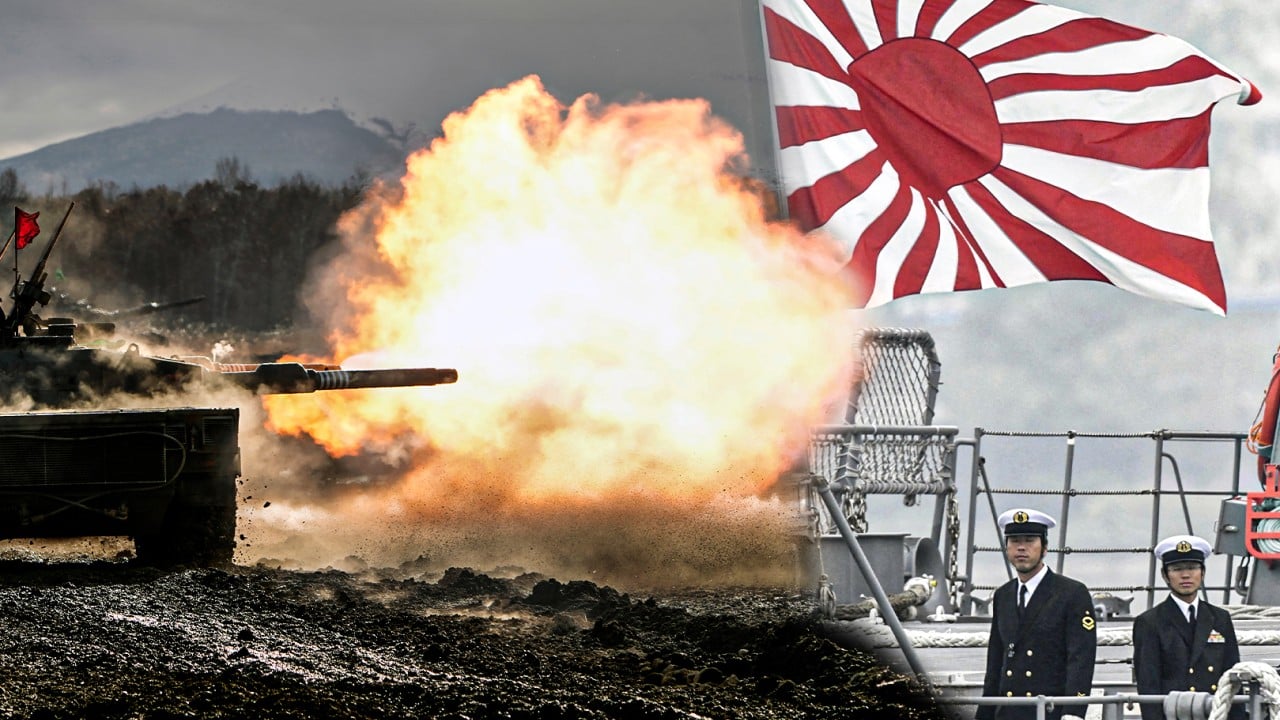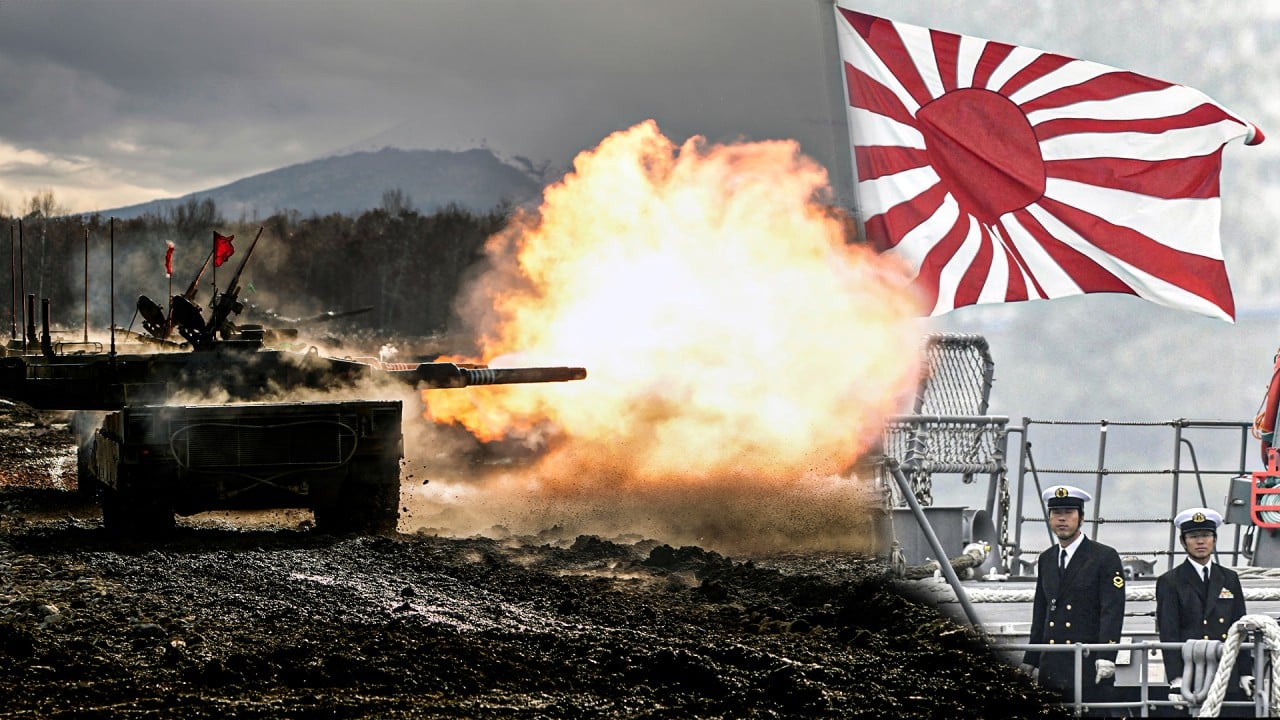Japanese Prime Minister Fumio Kishida’s surprising decision to step down is expected to throw the future of Sino-Japanese relations into deeper uncertainty, with experts predicting that Japan will continue its strategic coordination with the US to counter China.
No matter who succeeds Kishida, observers said Japan’s next prime minister would face two pressing challenges abroad: rising geopolitical tensions with China, and Donald Trump’s potential return as president of the United States, Tokyo’s only treaty ally.
The diplomatic experts were not optimistic about a significant improvement in Sino-Japanese relations, though they said the two sides would continue their economic engagement, and they expected Tokyo to double down on its alliance with Washington and its allies to counter Beijing.
“The US and Japan perceive China as the major strategic challenge in their respective national security and defence strategies,” said Ryosuke Hanada, a security expert at Sydney’s Macquarie University, who noted that the perceived threat was deeply ingrained, extending beyond the views of individual leaders to reflect broader institutional and societal bases.
Despite political scandals at home, Kishida made some breakthroughs in Japan’s foreign policy during his three years in office.
He worked closely with US President Joe Biden to push for a stronger security alliance as a counterweight to China.
In one major step to bolster their security ties, the two sides agreed to upgrade the US military command structure in Japan into a joint force headquarters, a move that is expected to better coordinate the two militaries in case of a regional conflict in the Taiwan Strait or the East and South China seas.
Under Kishida, Japan has significantly strengthened ties with other US allies in the region, joining the US in three-way meetings with South Korea, the Philippines and Australia.
Notably, at the Camp David summit last August, Kishida joined Biden and South Korean President Yoon Suk-yeol and launched landmark initiatives to push back against China and North Korea, including a data-sharing mechanism for missiles and annual trilateral military drills across multiple domains.
Beijing has been cautious about Washington’s growing partnerships in the region, which the Chinese foreign ministry said were an attempt to provoke division, confrontation and revive the Cold War in the Asia-Pacific through various “small cliques”.
With an eye on China, the Kishida government has also adopted the far-reaching Economic Security Promotion Act to diversify supply chains and reduce economic vulnerabilities. It also enacted stringent controls on the export of sensitive technologies such as semiconductors, following in the footsteps of the US and the Netherlands.
Zheng Zhihua, research associate professor at Shanghai Jiao Tong University’s Centre for Japanese Studies, said Japan’s next leader was likely to continue tough policies against China.
“A new leader might introduce some differences and variations on policy issues, but any substantial adjustments in Japan’s stance towards China will be unlikely.”
Stephen Nagy, a visiting fellow at the Japan Institute of International Affairs (JIIA), said that both the ruling Liberation Democratic Party and Japan’s minority parties harboured deep scepticism about Beijing’s regional ambitions and its track record of economic coercion.
He added that Japan would “further deepen relations with the US and like-minded countries to enhance its deterrence capabilities and prevent China from dominating the region”.
Even if economic engagement between China and Japan was expected to persist, the incoming leader would have to “build resilience into bilateral relations under the umbrella term economic security”, Nagy said.
He added that this would protect Japan from economic coercion, the monopolisation of resources, and the risk of severe economic downturns that could arise from military conflicts in pivotal regions such as the Taiwan Strait and the East China Sea.
However, Nagy noted that Tokyo might step up cooperation with Beijing in areas such as academic exchanges and collaboration on environmental issues.
The prospect of a second Trump presidency also looms over Tokyo and other US allies.
A week after Trump won the 2016 US presidential election, former Japanese prime minister Shinzo Abe flew to Washington, becoming the first foreign leader to meet the US president-elect.
Nagy said a fundamental change was unlikely in US-Japan ties, given the multilayered nature of the bilateral relationship, which covers educational exchanges, military interactions, joint training, and collaborative technological development.
“Whether it is President [Kamala] Harris or President Trump, this will continue to be the case as the US needs a strong forward-leaning partner to balance and compete with China in the Indo-Pacific region,” Nagy said.
Following Kishida’s announcement on Wednesday, the Chinese foreign ministry said Beijing was eager to promote a “strategic and mutually beneficial relationship” between the two countries as well as build “constructive and stable relations” with Tokyo.
Zheng in Shanghai noted that Beijing had a relatively weak influence and was in a passive position in shaping how it was perceived by Japan or the US.
“When both nations position Beijing as a hypothetical adversary, [China] essentially struggled to explain or clarify its role within the security architecture of East Asia. It is crucial for China to consider how it could strengthen its ability to shape Japanese or American policy towards it,” he added.
Zhu Zhiqun, a professor of political science and international relations at Bucknell University in Pennsylvania, said the leadership transition might offer good timing for Japan to recalibrate its foreign policy approach towards China and to work to maintain some balance between Washington and Beijing.
“After all, Japan and China are neighbours with tremendous economic and cultural connections. Having a hostile bilateral relationship does not serve the interests of either nation.”
Ryo Sahashi, an associate professor of international politics at the University of Tokyo, said the top priority for the next Japanese prime minister would be how to navigate the uncertainties of a possible return by Trump. During his term, Trump lamented the expenses and downplayed the benefits of US alliances.
“The most critical issue for Japan remains how to deal with a potential Trump administration, which could pose a tougher challenge regardless of who becomes Japan’s next prime minister,” he said.
Among the contenders for the LDP leadership, Shigeru Ishiba, a former defence minister who values equality in the US-Japan relationship, would likely take a firm stance against Trump, according to Sahashi.
On the other hand, Sanae Takaichi, the current economic minister, and Toshimitsu Motegi, the LDP’s secretary general, may favour negotiations to ease pressures from the US, he added.



